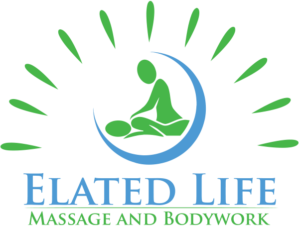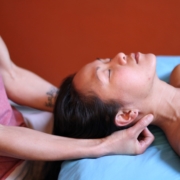8 Main Benefits of Massage Therapy
In today’s blog post I will focus on the many benefits of massage therapy. Many people are aware that the practice of regular massage helps reduce stress, but often people are unaware that massages can do much, much more, such as improving our sleep, reducing chronic pain, and even reducing the effects of anxiety and depression. Read on to discover the eight biggest benefits of massage therapy and to understand the more integrative benefits of regular massage.
Benefits of Getting a Massage
As mentioned above, there are numerous benefits of getting a massage, more than I can talk about now. I’ll focus on the main categories of stress reduction, toxin elimination, improved sleep, and flexibility. Be aware that massage can also help with anxiety, sports injuries, headaches (as discussed in my previous blog), and things like sports injuries and strains.
Reduces Stress
One of the major health crises today has to due with the increased amount of stress that people are experiencing on a daily basis. Stress leaves us with a lowered amount of energy, and it may contribute to headaches, poor digestion, insomnia, more frequent illnesses like colds, a loss of sexual desire and even create excess nervousness and shaking limbs.
Massage is widely used in all cultures to evoke feelings of deep relaxation and reduced anxiety. The anxiety-reducing and mood-enhancing benefits of massage are probably related to changes in EEG activity, decreased levels of cortisol and increased activity of the parasympathetic nervous system, which acts automatically to calm the body and brain during stress. Numerous studies show that moderate pressure massage is more effective than light pressure massage for reducing pain associated with different medical problems including fibromyalgia and rheumatoid arthritis. Moderate pressure massage also improves attention and enhances the body’s immune response by increasing the activity of natural killer cells. Functional brain imaging studies show that changes take place in many areas of the brain involved in regulating emotions and stress response including the amygdala and the hypothalamus. For an excellent review of the research evidence for massage therapy see “Massage Therapy Research Review” by Field (Field 2014).
Eliminates Toxins
Massage therapy can play a major role in helping remove toxins from our physical bodies. High levels of stress can create acid in the body and if this acid builds up over time, it can lead to a variety of health issues such as an increased heart rate, fever, nausea and it can cause excess stress on the lungs, kidneys, and liver. The physical stimulation created through massage therapy treatments helps dissolve and eliminate toxin buildup in the tissues. They are released into the bloodstream, which then works to transport them out of the body through excretion.
In addition to the physical and psychological benefits of massage, toxin removal can further enhance your health and long-term well-being. It supports the body’s natural detoxification systems by helping reduce or prevent future toxicity in the body.
Improves Sleep
Massage therapy has been shown to be better for sleep because it helps people relax, relieves pain, and it can also stimulate hormones that are conducive to sleep. Over 70 million Americans suffer from chronic sleep disorders and many of them would benefit from regular massage. One of the reasons is that massage helps increase serotonin, otherwise known as the ‘happiness hormone’ as well as melatonin, a naturally occurring chemical in our body that helps us maintain a regular sleep schedule. Many sufferers of insomnia are found to have decreased levels of serotonin. Research has shown increased serotonin levels are associated with better sleep.
Improves Flexibility
Massage therapy is one of the best and most beneficial treatments for improving and maintaining your flexibility and motion. By working on tendons, muscles, connective tissues, ligaments, and joints regular massage can improve flexibility, keep your joints more fluid and help you prevent future injuries.
Massage Therapy for Injuries
Massage is a popular treatment choice for athletes, coaches, and sports physical therapists. There is a lot of researching indicating that massage is a great choice for improving one’s recovery from an injury.
Improves Circulation
One of the first benefits of massage related to injury recovery is that massage improves the overall circulation in the body. This helps reduce inflammation and increase nutrient flow. According to Eileen Cahalane of Alive Magazine: A person with poor circulation can suffer from a variety of discomforts including pooling of the fluid in the extremities (like the toes), cold hands and feet, fatigue and achiness created by an accumulation of lactic acid in the muscles. Good circulation brings damaged, tense muscles the oxygen-rich blood they need to heal.
Reduces Pain
According to Harvard Health, Therapeutic massage may relieve pain by way of several mechanisms, including relaxing painful muscles, tendons, and joints; relieving stress and anxiety; and possibly helping to “close the pain gate” by stimulating competing nerve fibers and impeding pain messages to and from the brain. Massage used to be considered an indulgence, but it’s now recognized as a legitimate therapy for some painful conditions.
Reduces Post-Surgery and Post-Injury Swelling
One of the biggest issues facing us after a surgery or injury is swelling and inflammation. Surgery can often result in swelling and inflammation around the surgical site. Using manual lymphatic drainage techniques, such as nodal pumping, passive range of motion and directional massage towards the heart, massage therapy can aid in reducing the amount of lymphatic and interstitial fluid at the surgery site, thereby helping to decrease pain and tightness, helping you recover.
Integrative Massage Benefits
What is Integrative Massage?
Integrative massage therapy is a treatment that involves the integration of therapy techniques from a number of different massage modalities including Swedish, deep-tissue, Lymphatic Massage, myofascial, trigger point, and Shiatsu. In integrative massage, the client and therapist will work closely together to determine the appropriate treatment in each session. The massage therapist, in integrative massage, is looking at the entire mind-body system to treat injuries, pains, and discomforts. They aren’t just treating the specific area of pain. For example, there is a concept called referred pain. Referred pain is pain perceived at a location other than the site of the painful stimulus. Integrative massage can be very effective in working with referred pain.
Alleviate Depression & Anxiety
Depression and anxiety are two of the most common issues facing people today. Many people are unaware that massage can be part of an overall treatment plan for both conditions. As mentioned above, integrative massage is looking at the entire mind-body system of the client, not just treating the specific area of tension or pain. When looking at the person as a whole, rather than a collection of muscles or joints, a massage therapist can help a client not only with physical issues but with psychological issues such as depression and anxiety. While massage should never be considered a replacement for proper psychological care, it can be a great accompaniment. Research shows that the simple act of being touched by another human being helps release hormones such as dopamine and serotonin, thereby stimulating our parasympathetic nervous system (the one responsible for resting and relaxing), and reducing cortisol levels.
What is Cortisol and How Does It Relate to Anxiety?
Cortisol is a hormone that’s secreted by your adrenal glands, which are located on top of your kidneys. Often called the fight or flight chemical, cortisol acts as an overall stimulant, causing your heart to beat faster, your blood vessels to constrict, and your muscles to tense in preparation to meet a real or imagined threat. Healthy cortisol levels are important for overall energy levels, and for dealing with healthy life stressors such as getting a new job or meeting the demands of daily life.
However, when the seemingly endless stressors of modern life, coupled with our generally sedentary lifestyle, conspire to raise cortisol levels to unhealthy extremes, we experience anxiety and poor health. Increased cortisol levels give us the energy to cope with life’s problems, and that’s generally a good thing, provided it’s temporary. It’s when our cortisol levels are permanently elevated that we run into trouble. High cortisol produces excess anxiety, among other negative health concerns. That’s why it’s very important to lower your level of cortisol.
Conclusion
Fundamentally, integrative massage can be a great way to bring together mind, body and even spirit. So, how does the body, mind, and spirit fit together? Our emotions are connected to our mental state. If we are tense and anxious, it will affect our minds. In turn, it will translate to our body, possibly creating muscle tension and high blood pressure, for instance. Therapeutic massage will use this process in reverse; it will relax the body and reach into our mental and emotional state. This cycle, over time, eases both the mind and body.
The body, mind and spirit work as a system of energy. We connect our body, mind, and spirit to keep energy flowing within us. This energy flow can be abundant or restricted, depending on our ‘state of being’ in each moment, as it changes constantly. A professional massage can do wonders for your stress levels and overall well-being.
Consider honoring yourself by getting a regular monthly massage. The perks of monthly sessions go far beyond one relaxing afternoon. Health, peace, time, silence, warm touch and relationships are all amazing benefits of massage.
Massage Therapy Research Review, Field 2014 https://www.ncbi.nlm.nih.gov/pmc/articles/PMC5467308/






Leave a Reply
Want to join the discussion?Feel free to contribute!